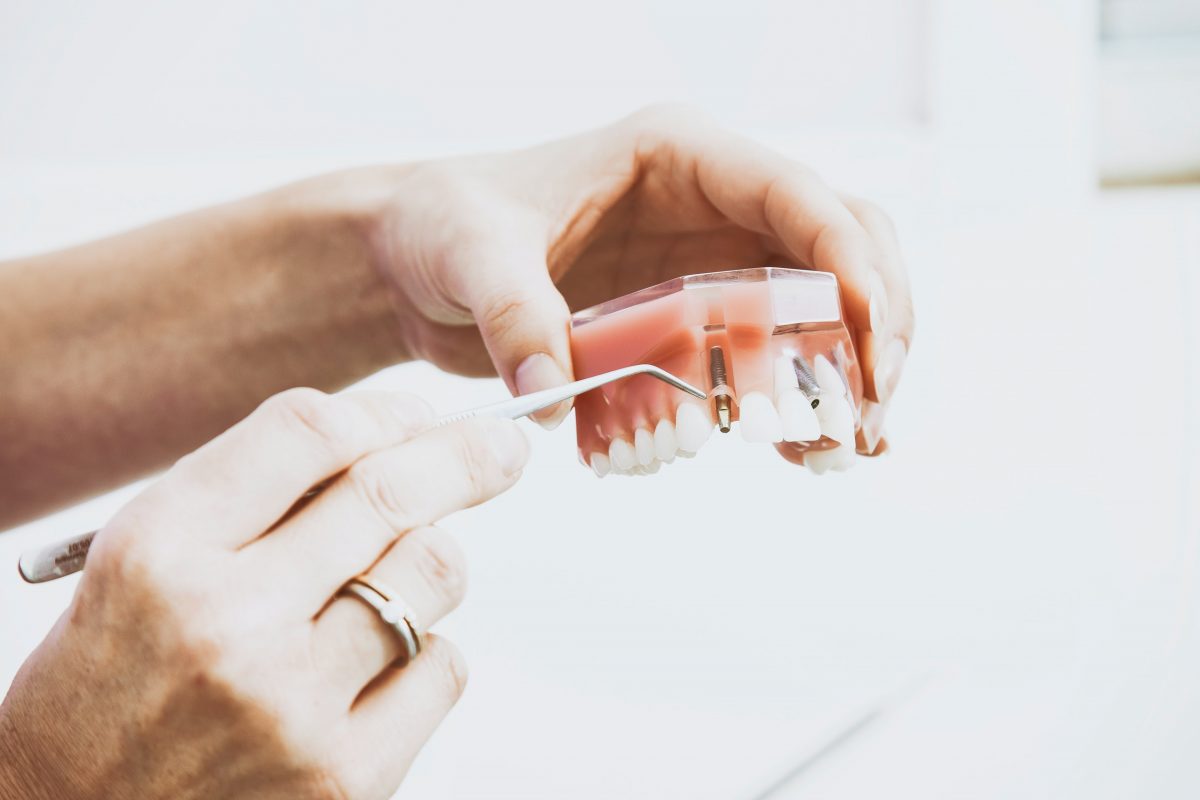Most Common Myths and Facts About Dental Implants

If you’ve lost a tooth or teeth, you’ve probably considered dental implants. Dental implants, also referred to as tooth implants, are titanium fixtures that a cosmetic dentist surgically puts into the jawbone behind the gums. They are strong, solid, and permanent. Replacement teeth are then screwed onto the screws once they’ve been set in place.
Despite the fact that dental implants have been around for many years, their popularity has risen in recent years. As the popularity of implants grows, so do some misconceptions about the operation. Below are some of the most common myths we encounter in our profession.
Myth: Dental Implants feel fake and unnatural. Everyone will know you have implants.
Fact: Dental Implants look and feel realistic.
Any artificial tooth must have a genuine appearance. You want your prosthetic tooth to seem natural and blend in with your natural teeth. Beyond that, you want chewing and talking to feel normal. Dental implants, unlike dentures or bridges, function very much like real teeth.
The implant crown will be the same color as the rest of the patient’s natural teeth, according to the dentist. The porcelain used in crowns, on the other hand, is frequently stain-resistant. If the remainder of a person’s teeth start to yellow, the crown may become noticeably lighter. This is one of the reasons why regular dental hygiene is so important.
Myth: Getting dental implants is extremely painful.
Fact: Getting dental implants may be uncomfortable – just like any other oral procedure.
Many patients are apprehensive about obtaining dental implants; it’s a surgical operation, after all, so it’s certainly understandable. Part of the dentist’s job is to make sure you are calm, comfortable and relaxed throughout your operation. An anesthetic is used to numb the area being worked on the patient, and sedatives are also an option if anxiety is a concern.
Throughout dental implant procedures, patients rarely, if ever, feel pain. There may be some discomfort, as well as a sense of tension or pulling, but there will be no pain. You may suffer soreness and inflammation in the days following your operation, but cool compresses and over-the-counter anti-inflammatory pain medication will help.
Myth: Dental implants are too expensive.
Fact: Many people are able to afford dental implants every year – and they are a great investment.
Many people believe that dental implants are prohibitively expensive. An implant is more expensive than a dental bridge or dentures, but it also lasts longer. If a person’s implant is properly cared for, it can last a person’s entire life. Dentures, on the other hand, must be renewed every five to seven years and dental bridges have a 15-year lifespan.
Myth: Dental implants can damage parts of your mouth.
Fact: Implants protect your teeth and improve your oral health.
Dental implants, as opposed to dentures or bridges, contribute to substantially improved oral health. Dental implants provide two types of protection for your mouth:
- Preserving nearby teeth: When a tooth is lost, the teeth around it may migrate into the gap left by the missing tooth. This gap is filled by a dental implant, which keeps your teeth straight and in place. Both bridges and partial dentures have the potential to harm and loosen neighboring teeth. To retain your whole smile in its greatest form, dental implants eliminate the necessity for hooking or cutting down surrounding teeth.
- Bone preservation: When natural tooth roots are no longer connected to your jawbone, that piece of bone starts to degrade and fade away.
Myth: Dental implants need special care.
Fact: With dental implants, people must maintain regular oral hygiene practices.
Brushing and flossing your teeth on a daily basis is a must. Patients should continue to see their dentist for routine checkups, proper cleanings, and oral exams. Implants, in comparison to a dental bridge or dentures, require far less specialist maintenance.
Myth: Dental implant surgery is too risky.
Fact: Every surgery carries some risk, but dental implant surgery has a 95% to 98 percent overall success rate.
Implants do not fall out and cannot be lost, unless in extremely unusual circumstances. Little things in life have such a high rate of success, and the majority of patients are really pleased with their new teeth.
Do You Want a New Smile Through Dental Implant Surgery?
It’s critical to clarify the misconceptions about dental implants and the required treatment. Knowing the facts can assist you in deciding whether or not you want to replace your missing teeth with implants. Whether you were worried about the healing period or the appearance of implants in your mouth, you now have all the knowledge you need to make a decision. Contact us at CDG to see if this procedure is right for you!